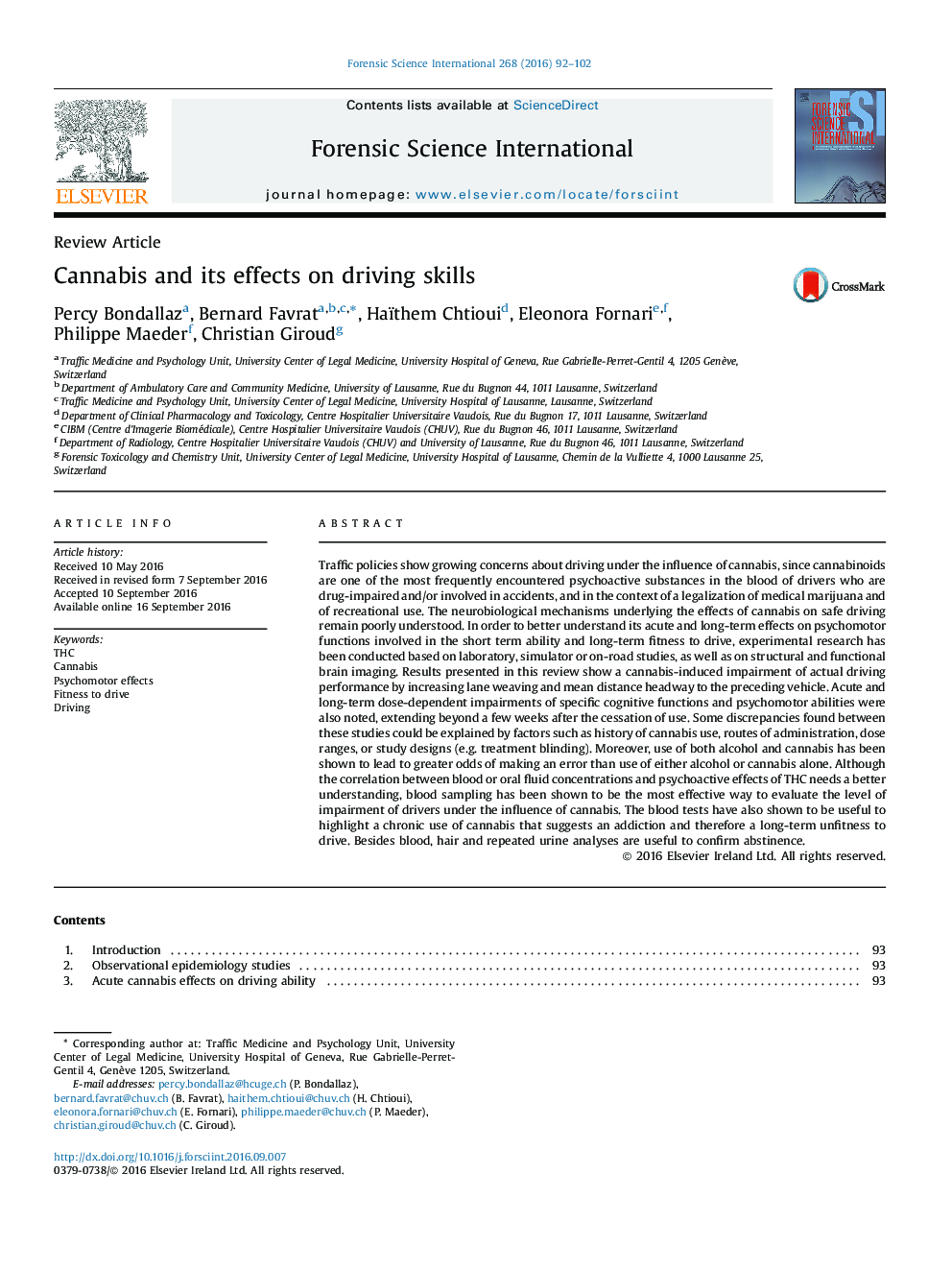| کد مقاله | کد نشریه | سال انتشار | مقاله انگلیسی | نسخه تمام متن |
|---|---|---|---|---|
| 4760371 | 1421982 | 2016 | 11 صفحه PDF | دانلود رایگان |
- Cannabis impairs cognitive and psychomotor performances.
- An 8-h delay after maximal effects is recommended for cannabis self-treatment.
- Blood THCCOOH level >40 μg/l suggests regular cannabis use and long-term impairment.
- No correlation was found between psychomotor task performance and THC blood levels.
- Acute cannabis consumption nearly doubles the risk of a collision.
Traffic policies show growing concerns about driving under the influence of cannabis, since cannabinoids are one of the most frequently encountered psychoactive substances in the blood of drivers who are drug-impaired and/or involved in accidents, and in the context of a legalization of medical marijuana and of recreational use. The neurobiological mechanisms underlying the effects of cannabis on safe driving remain poorly understood. In order to better understand its acute and long-term effects on psychomotor functions involved in the short term ability and long-term fitness to drive, experimental research has been conducted based on laboratory, simulator or on-road studies, as well as on structural and functional brain imaging. Results presented in this review show a cannabis-induced impairment of actual driving performance by increasing lane weaving and mean distance headway to the preceding vehicle. Acute and long-term dose-dependent impairments of specific cognitive functions and psychomotor abilities were also noted, extending beyond a few weeks after the cessation of use. Some discrepancies found between these studies could be explained by factors such as history of cannabis use, routes of administration, dose ranges, or study designs (e.g. treatment blinding). Moreover, use of both alcohol and cannabis has been shown to lead to greater odds of making an error than use of either alcohol or cannabis alone. Although the correlation between blood or oral fluid concentrations and psychoactive effects of THC needs a better understanding, blood sampling has been shown to be the most effective way to evaluate the level of impairment of drivers under the influence of cannabis. The blood tests have also shown to be useful to highlight a chronic use of cannabis that suggests an addiction and therefore a long-term unfitness to drive. Besides blood, hair and repeated urine analyses are useful to confirm abstinence.
Journal: Forensic Science International - Volume 268, November 2016, Pages 92-102
